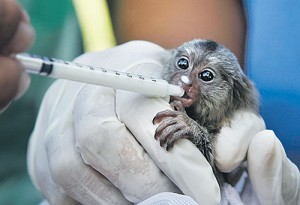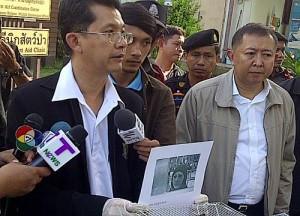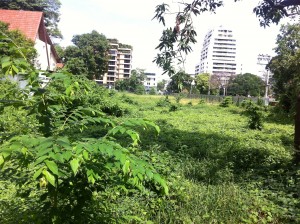It's time to take action—learn how you can help stop this exploitation and protect slow lorises from further harm.
Wildlife trafficker escapes at Bangkok airport
Protected primates a new “export product” for Thailand?
 Marmoset being fed milk at Bangkok Airport after being found hidden in a suitcase
Marmoset being fed milk at Bangkok Airport after being found hidden in a suitcase
An arab woman bound for Kuwait from Bangkok airport was found to have 12 lorises, 11 pythons and 1 marmoset monkey hidden in her suitcase while checking in for her flight at Suvannabhumi Airport in Bangkok yesterday. The woman who “escaped” after she witnessed officials opening her suitcase and finding the illegally obtained wildlife was probably taking the animals to Kuwait to be sold as pets. Lorises are known to be in high demand as they look cute with their big eyes and slow movement. Although the loris is protected from cross-border trade by the the CITES convention since 2007 and local protection laws within Thailand, they are still found on the beaches of tourist destinations in Thailand as well as the Jatujak weekend market in Bangkok where they are sold openly for prices between $100 to $400 each.
 Officials show the photograph of the suspect from a CCTV camera
Officials show the photograph of the suspect from a CCTV camera
The suspect who escaped arrest on the airport yesterday is known to the authorities as her name was on the label of the suitcase, but still it is strange she was able to get away from the well secured International airport. Last year an Arab man who tried to smuggle out lots of wild animals in a suitcase including leopard cubs, a bear cub, a gibbon and marmoset was released on bail after being caught red-handed and fled Thailand through the same airport within a day.
The finding of one marmoset monkey in the suitcase of the woman departing for Kuwait is no surprise for us; over the last three years thousands of monkeys have been “legally” imported into Thailand from South America and South Africa. The monkeys of the species and groups such as marmosets, capuchins, squirrel monkeys and tamarins are imported by the dozens at a time but shipment sof over a hundred are no exception, while a high percentage of up to 40% at the time arrive dead at Bangkok Airport (A shipment of tamarins from Guinea arrived through Amsterdam in Bangkok on 26 June 2012 with only 23 out of 39 alive!), authorities not enforcing quarantine regulations or investigating cause of death.
 The “head-office and quarantine area” of the monkey importer
The “head-office and quarantine area” of the monkey importer
Currently WFFT is still investigating the trade in monkeys in and out of Thailand. Thailand is supposed to have laws in place (part of the signatory rules of CITES) to protect foreign protect wildlife such as the monkeys found in the trade and larger protected wild animals such as orangutans, chimpanzees, African elephants but we recently found that no cases on wildlife trade ever went to court once it involved foreign species not found within Thailand. A high government official recently told the “Bangkok post” that for example the African elephant is not protected under Thai law. WFFT found further evidence that importers of monkeys in Thailand do not quarantine any animals on arrival and use fake addresses and names for registration of their import shipments.
WFFT expects to publish a report on the monkey pet trade within September of this year. If you wish to contribute to this investigation you can do so by donating through our Paypal account.




